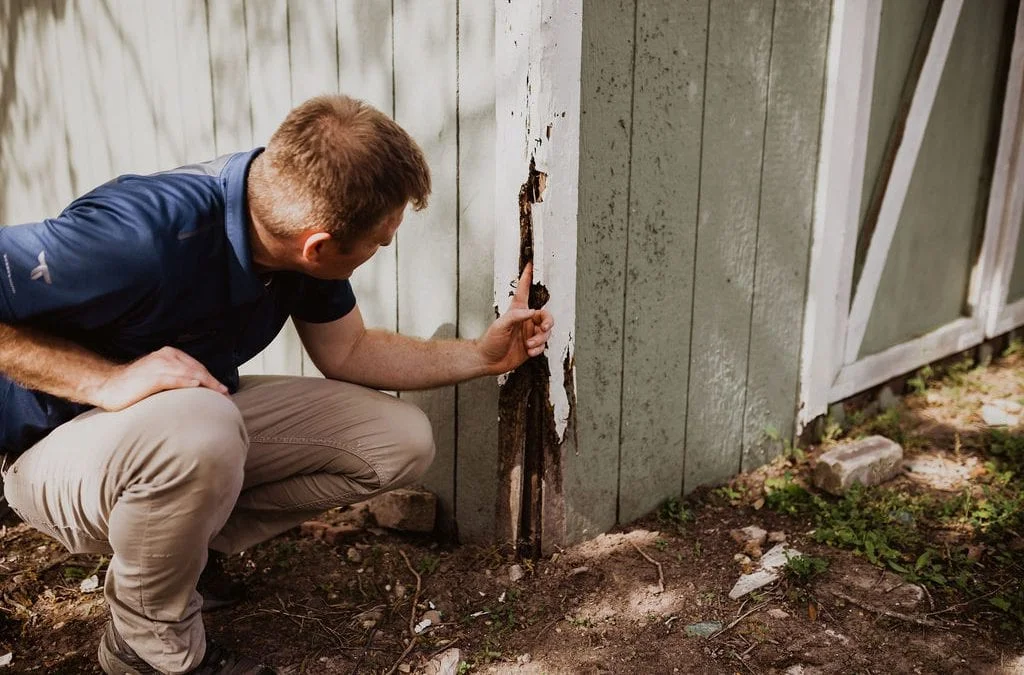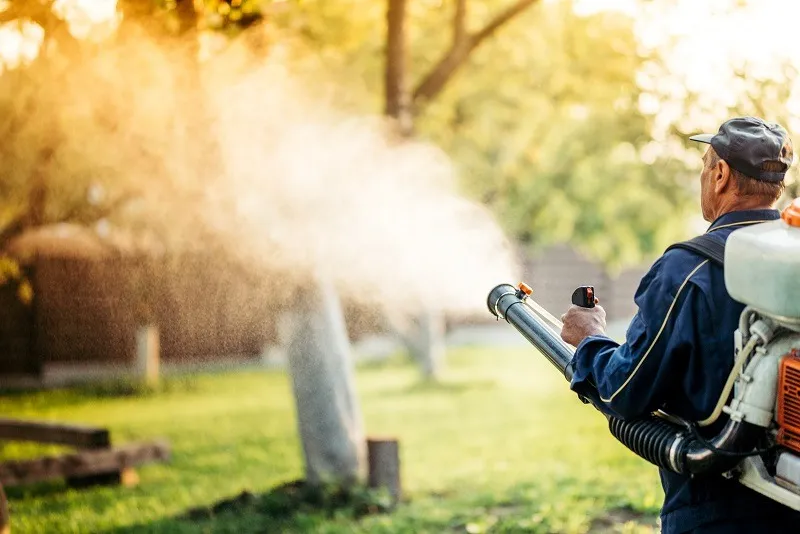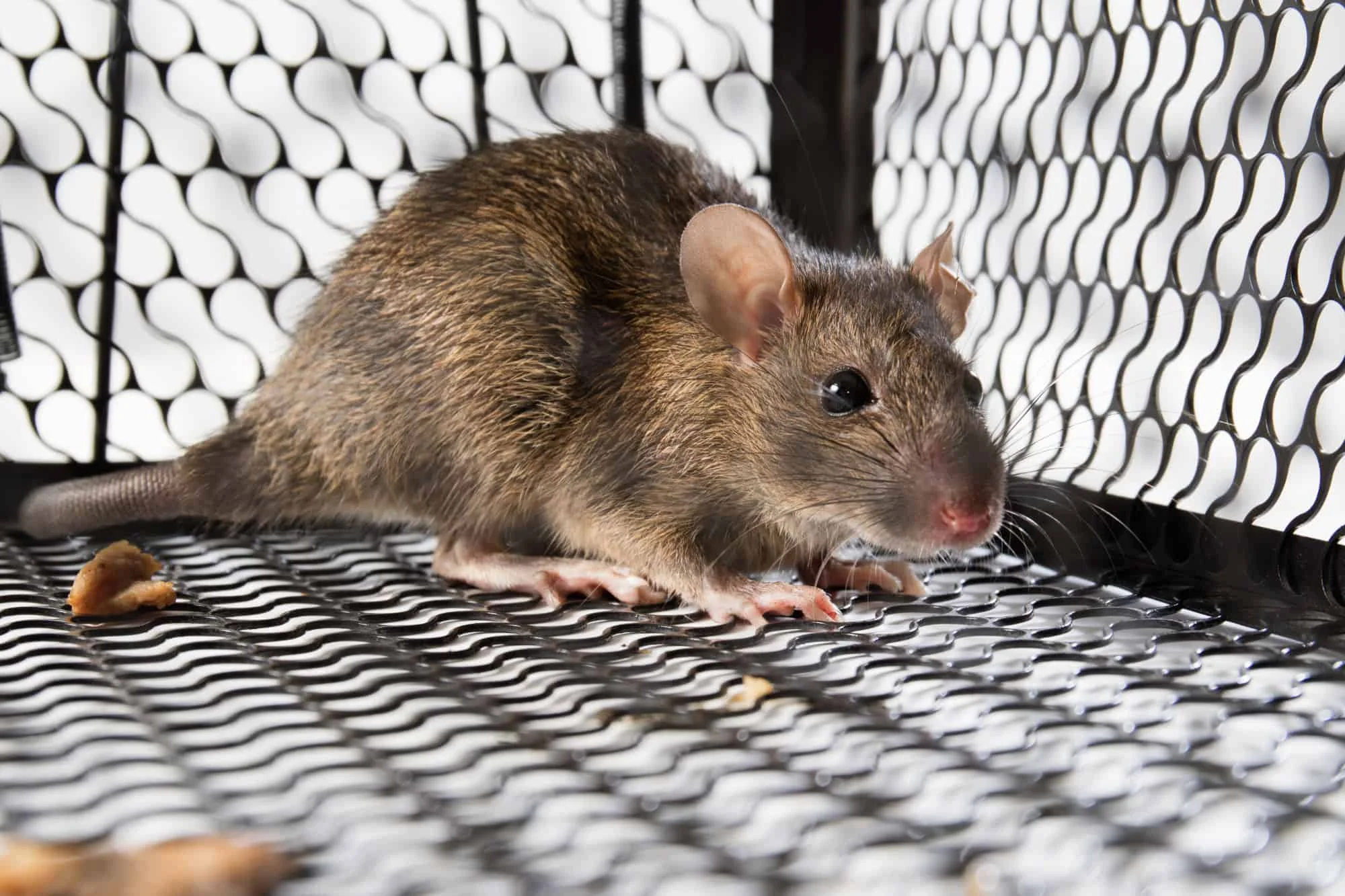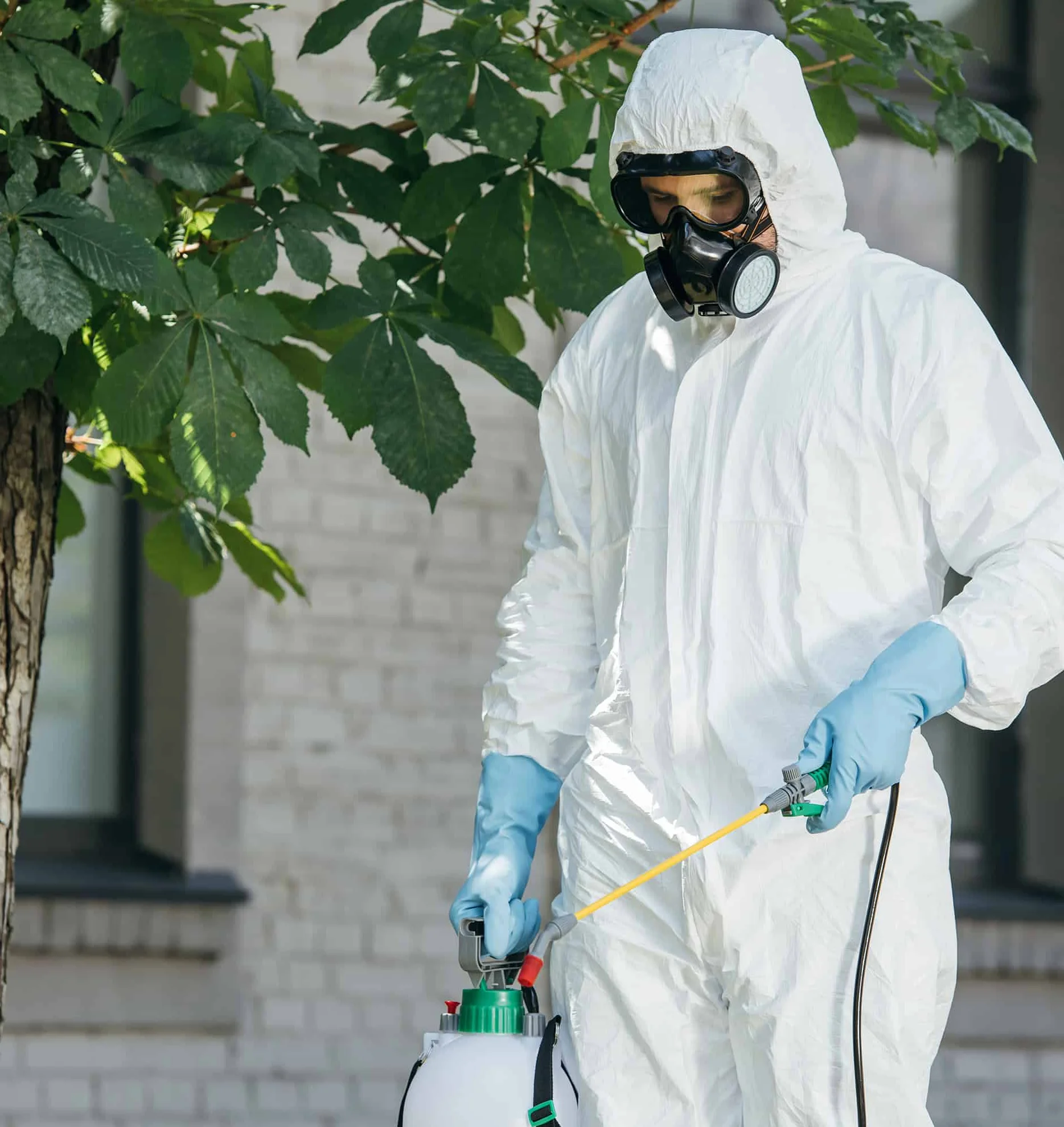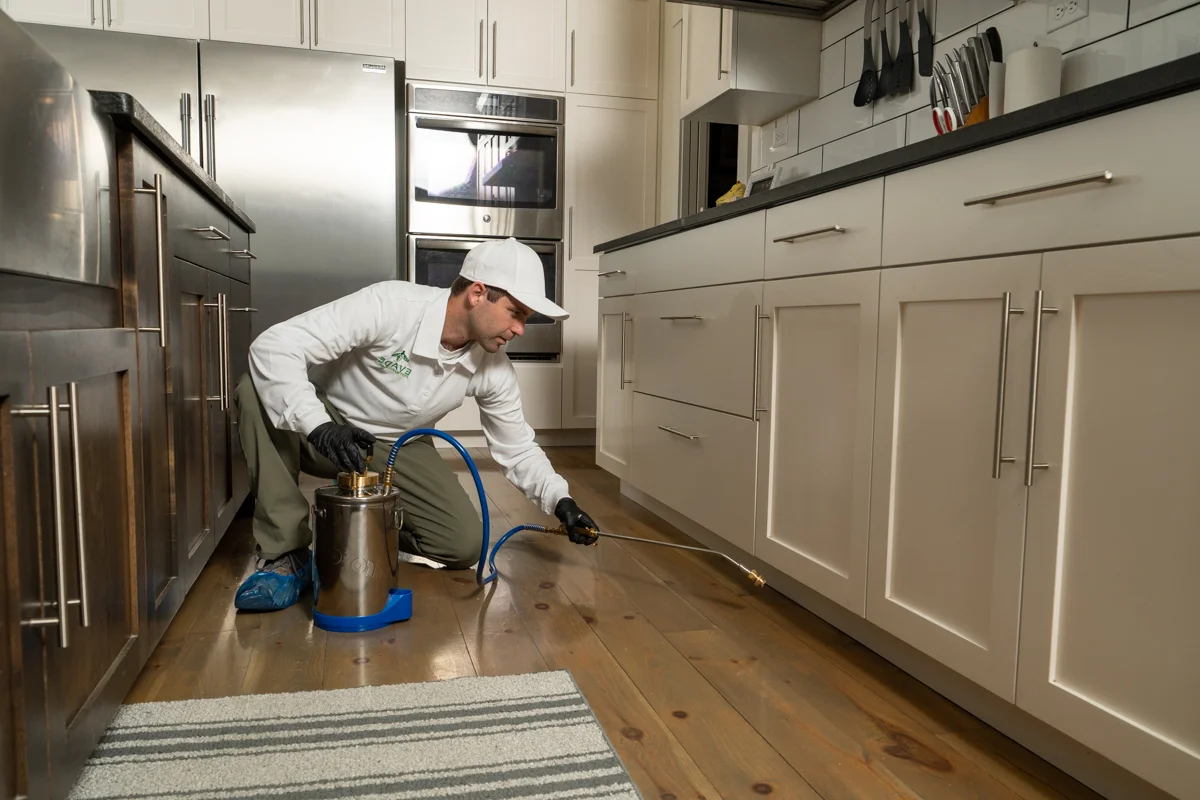From hot, humid summers to mild winters, Alabama's climate
creates an ideal breeding ground for pests. Whether it's termites
quietly chewing through wood, swarms of mosquitoes buzzing on a warm
evening, or rodents scurrying in attics, pests are a year-round
concern in the Yellowhammer State. Effective
pest control in Alabama means understanding these unique
conditions – the dense forests, abundant water sources, and mix of
older and new homes that all contribute to pest problems.
Homes and businesses across the state face risks from pest
infestations that can damage property and threaten health. That's why
many turn to a professional exterminator for help. Local
experts know that prompt action and preventive measures are key to
keeping Alabama properties pest-free. In this guide, we'll explore
common pest challenges in Alabama, how to combat them with
eco-friendly pest solutions, and why trusting local
professionals ensures the best results.
Suspect a pest problem? Our Alabama team offers
emergency pest control
24/7 and free
termite inspection to protect your home fast.
Call now for immediate help!
Pest Control Challenges Specific to Alabama
Alabama's environment creates a perfect storm for pest issues. Here
are a few reasons pest control in Alabama can be challenging:
-
Warm, humid climate In Alabama's subtropical climate, many
insects can breed multiple times per year. Hot temperatures and high
humidity allow pests like mosquitoes, ants, and roaches to thrive
nearly year-round.
-
Heavy rainfall Frequent rain and mild winters mean plenty of
standing water and moist soil. This leads to ideal breeding sites
for mosquitoes and creates moisture that attracts termites and other
wood-destroying pests.
-
Diverse landscapes From coastal wetlands in Mobile to thick
forests in northern Alabama, the state's varied geography hosts a
wide range of pests. Rural farmland invites rodents and insects,
while urban areas see steady pressure from rats and cockroaches.
-
Home construction Many Alabama homes are built with crawl
spaces and wood framing. If not properly sealed and maintained,
these provide easy access and shelter for pests like termites,
rodents, and spiders.
-
Invasive pests Alabama is home to aggressive invaders like
fire ants and Formosan termites. These non-native species thrive in
the state's environment and can out-compete other species, leading
to larger infestations that are tougher to control.
Given these factors, proactive pest prevention and regular
inspections are critical. Staying ahead of infestations with
year-round pest management is often the best strategy for Alabama
residents.
Common Pests in Alabama
Thanks to the climate and environment, Alabama residents encounter a
variety of pests. Below are some of the most common culprits and how
they impact homes and businesses:
Termites
Technician performing a termite inspection on a home
Termites are a major threat throughout Alabama, causing millions
of dollars in damage by silently devouring wood structures. The
state's warm climate allows termite colonies to stay active almost
year-round, making routine termite inspection very
important. Subterranean termites (including the especially
destructive Formosan species found mostly in southern Alabama)
will chew through foundations and frames if left unchecked.
It's not uncommon to see swarms of winged termites on humid spring
days, a sure sign that a colony is nearby. Professional treatment
and annual inspections are the best defense against these
wood-destroying insects.
Mosquitoes
Technician performing mosquito fogging in a backyard
Alabama's humid summers and frequent rainstorms mean mosquitoes
are more than just a backyard nuisance – they're a persistent
seasonal plague. Standing water from rain or irrigation gives
mosquitoes ample places to breed, leading to buzzing swarms in
warm months. Effective mosquito control typically involves
eliminating breeding sites and treating yards to reduce mosquito
populations.
Apart from itchy bites, mosquitoes can transmit illnesses like
West Nile virus, so controlling them is important for public
health. Residents often schedule regular yard treatments or
install misting systems to enjoy outdoor spaces without constant
mosquito bites.
Rodents
Setting up rodent traps in an attic for rodent control
Mice and rats are year-round pests in Alabama, often seeking
shelter indoors as they search for food and nesting sites. Older
homes, barns, and even suburban houses provide inviting hiding
spots for these clever critters. Rodents can chew through drywall,
wiring, and pipes – posing fire hazards and causing costly damage.
They also contaminate surfaces with droppings, which is a health
risk. Successful rodent control in Alabama starts with
sealing entry points (like gaps under eaves or in foundations) and
using traps or baits to eliminate existing infestations. Because
rodents reproduce quickly, early intervention is essential to
prevent a small problem from turning into a big infestation.
Ants
Several ant species make their home in Alabama, but fire ants are the
most notorious. Fire ant mounds popping up in lawns are a common
sight, and these aggressive ants deliver painful stings to anyone who
disturbs them. In kitchens and pantries, tiny sugar ants may invade in
search of food, while carpenter ants can tunnel through wet or rotting
wood.
Preventing ant problems involves keeping a tidy home and yard and
addressing colonies promptly. Professional treatments can eliminate
ant colonies at the source – for example, using targeted baits that
worker ants carry back to the nest. Year-round pest control service
can also help catch ant infestations early as part of an overall
residential pest protection plan.
Cockroaches
Warm, damp environments make Alabama a cockroach haven. The large
American cockroach (often called a "palmetto bug") thrives in
basements, crawl spaces, and sewer systems, frequently finding its way
into homes – especially in older neighborhoods with mature trees and
underground water lines. German cockroaches, the smaller light-brown
roaches, are another common indoor pest, rapidly multiplying in
kitchens and bathrooms if food and water are available.
Cockroaches aren't just unsettling; they can spread bacteria and
trigger allergies and asthma. Keeping a clean home is important, but
even spotless houses can get roaches. Professional exterminators use a
combination of baits, insect growth regulators, and crack-and-crevice
treatments to achieve thorough cockroach control, ensuring these hardy
pests are eradicated and don't return.
Eco-Friendly Pest Control Approaches
Many Alabama homeowners and businesses are concerned about the use
of harsh chemicals, especially around kids, pets, or livestock.
Fortunately, modern pest control offers
eco-friendly pest solutions that are effective against
pests while gentle on the environment. An Integrated Pest
Management (IPM) approach is common – this means combining smart
pest prevention practices with targeted treatments to
minimize pesticide use. For instance, technicians might use
botanical oils or biological controls (like beneficial nematodes
in gardens) as alternatives to traditional chemicals.
Eco-friendly methods also focus on making your property less
inviting to pests in the first place. Simple steps like sealing
cracks, removing food sources, and improving drainage around the
foundation go a long way. When treatments are needed, a
professional will choose products that are low-toxicity yet still
effective – such as bait stations or organic sprays that target
specific pests. This protects pollinators and local wildlife while
still keeping your home pest-free.
Environmental Commitment
Our Alabama pest control specialists are trained in the latest
eco-friendly techniques, helping preserve the state's natural beauty
while solving your pest problems effectively.
Below is a quick comparison of different pest control treatment
methods, including green options, to highlight their benefits:
| Treatment Method |
Benefits |
Ideal Use |
| Chemical Sprays |
Fast-acting knockdown of insects; provides quick relief from
active infestations.
|
Severe or widespread insect problems where immediate reduction is
needed.
|
| Baiting Systems |
Targets pests like ants, roaches, or termites at their source;
minimal exposure of chemicals in living spaces.
|
Indoor infestations and termite colonies – pests carry bait back
to the nest to eliminate the whole colony.
|
| Traps & Physical Methods |
Non-chemical approach (snap traps, glue boards, exclusion
techniques); safe for use around children and pets.
|
Rodent control and monitoring insect activity; great for sensitive
environments where chemicals must be limited.
|
| Integrated Pest Management (IPM) |
Holistic strategy combining prevention, sanitation, and minimal
chemical use; long-term sustainable results.
|
Ongoing pest prevention plans for homes and facilities – ideal for
maintaining a pest-free environment with minimal pesticide
reliance.
|
| Organic Treatments |
Uses natural ingredients (plant oils, diatomaceous earth, etc.);
eco-friendly and low toxicity.
|
Minor pest problems or as part of a green pest control program
when clients prefer all-natural solutions.
|
No matter which methods are used, a skilled technician will customize
the approach to your situation – often combining techniques for the
best results. With the right plan, you can eliminate pests and also
feel good about protecting Alabama's beautiful environment.
Residential vs Commercial Pest Control
Residential Pest Protection
For homeowners in Alabama, keeping the household safe from bugs
and rodents is a top priority.
Residential pest protection usually involves regular
preventative treatments (such as quarterly service plans) and
quick response to any emerging issues. Common home invaders like
ants in the kitchen, termites in the walls, or wasps on the porch
are addressed with family-safe treatments.
Pest control technicians work with homeowners to harden the home's
defenses – sealing cracks, installing screens, and safeguarding
attics and crawl spaces. The goal is a pest-free home where your
family can relax comfortably and healthily.
Commercial Pest Control
Businesses in Alabama also need robust pest management, but their
needs can differ from homes. Restaurants, for example, must remain
vigilant against roaches and rodents to comply with health codes and
protect their reputation. Warehouses and grocery stores might face
issues with stored-product pests or rodents, requiring ongoing
monitoring.
Professional commercial pest control services offer discreet,
fast-acting solutions to keep businesses up and running without pest
interruptions. This can include after-hours treatments for minimal
disruption and the use of special equipment (like pheromone traps or
automated monitoring) for large facilities. By partnering with a local
pest control provider, Alabama businesses can ensure their premises
stay clean, safe, and welcoming for customers and employees alike.
From residential pest protection plans to customized
commercial pest control solutions, we have you covered –
schedule your service now and keep your
property pest-free!
Why Choose Local Experts in Alabama?
When it comes to protecting your property, working with a local
Alabama pest control company offers distinct advantages. A hometown
team understands the region's specific pest patterns and truly cares
about the community. Here's why choosing local experts makes a
difference:
-
Fast, local response Local technicians can reach you quickly
in an emergency. When you need emergency pest control for a
sudden infestation, a nearby team can be on-site faster than a
distant provider.
-
Knowledge of Alabama pests Experienced local pros know the
seasonal cycles of Alabama pests by heart – from termite swarming
season in the spring to mosquito peaks in the summer. They
anticipate issues before they escalate.
-
Familiar with local homes and businesses Alabama has a mix of
historic homes, new builds, and rural properties. Local
exterminators understand common construction quirks (like crawl
spaces or well water systems) that can affect pest control plans.
-
Personalized service and trust With a local company, you're
more than just a number. You'll often see the same friendly faces at
each visit, and they'll tailor treatments to your specific needs.
Supporting local businesses also strengthens your community.
In short, local professional exterminators combine expertise
with neighborly care. They not only eliminate pests effectively but
also provide peace of mind that your home or business is in good
hands.
Pests don't stand a chance with the right team on your side. Trust
PestControl100 for dependable pest control in Alabama –
contact us today and reclaim your space!
Top Cities for Pest Control in Alabama
While pests can strike anywhere in the state, some areas see more
frequent activity. Below are a few of the top Alabama cities where
quality pest control is especially important:
Birmingham
As Alabama's largest city, Birmingham properties face unique pest
challenges from suburban wildlife to urban cockroaches. The city's
older neighborhoods with mature trees are particularly vulnerable to
termites, while newer developments often encounter issues with
rodents during construction phases.
Mobile
Mobile's coastal location and high humidity create perfect
conditions for mosquitoes, termites and moisture-loving pests. The
port city's international shipping traffic also occasionally
introduces invasive species that require specialized control
techniques.
Seasonal Pest Guide for Alabama
Spring (March-May)
- Termite swarms emerge
- Ants become active
- Mosquito breeding begins
Recommendation: Schedule annual termite
inspection and begin mosquito prevention.
Summer (June-August)
- Peak mosquito activity
- Cockroach populations explode
- Fire ant mounds multiply
Recommendation: Regular mosquito treatments and
comprehensive perimeter protection.
Fall (September-November)
- Rodents seek indoor shelter
- Spiders become more visible
- Stink bugs and boxelder bugs invade
Recommendation: Seal entry points and schedule
rodent prevention services.
Winter (December-February)
- Indoor pest activity increases
- Rodent problems peak
- Occasional cockroach infestations
Recommendation: Focus on exclusion work and
address indoor infestations.
What Our Alabama Clients Say
"After struggling with persistent termite issues in our Montgomery
home, PestControl100 provided a thorough treatment plan that
finally solved our problem. Their annual inspection gives us peace
of mind."
- James H., Montgomery
★★★★★
"The mosquito treatment transformed our backyard in Huntsville
from a no-go zone to our favorite family gathering spot. Worth
every penny for a summer free of mosquito bites!"
- Sarah M., Huntsville
★★★★★
"As a restaurant owner in Birmingham, pest control is
non-negotiable. Their commercial service is discreet, effective,
and keeps us compliant with health regulations."
- Robert L., Birmingham
★★★★★
Frequently Asked Questions
How often should Alabama homeowners schedule pest control
services?
Most Alabama homes benefit from quarterly pest control
treatments due to our year-round pest pressure. However, some
situations may require monthly visits (especially for mosquito
control during summer) or bi-monthly service. During your
initial inspection, our technicians will recommend the optimal
schedule based on your property's specific needs and pest
history.
Are your treatments safe for pets and children?
Absolutely. We prioritize your family's safety by using products
that are effective against pests but formulated to have minimal
impact on people and pets. Our technicians apply treatments in
targeted areas where pests travel, keeping them away from play
areas. We'll provide specific reentry times after treatment, but
typically spaces are safe for family and pets once treatments
dry (usually 1-2 hours).
What makes Alabama's termite problem worse than other states?
Alabama's combination of humidity, mild winters, and abundant
wooden structures creates ideal conditions for termites. The
state lies in what's called the "Termite Belt" where both native
subterranean termites and invasive Formosan termites thrive.
Additionally, our long warm season means termites remain active
nearly year-round, giving them more time to cause damage
compared to northern states where cold winters naturally limit
termite activity.

